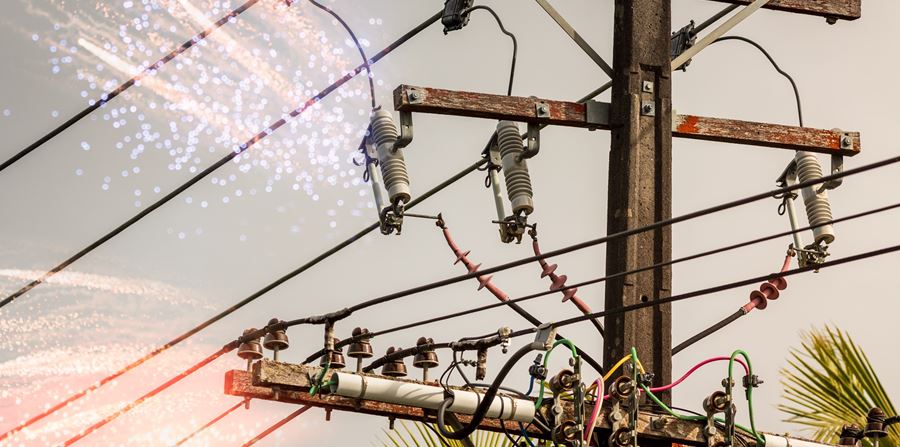Tough Coverage Decisions on Equipment: Is it a Power Surge, Lightning, or Something Else?

When it comes to determining the cause of electrical or mechanical equipment damage, having the right knowledge and asking the right questions is crucial. This becomes even more challenging when only one piece of equipment is damaged and there is a limited pattern of damage to investigate. For example, if an office experiences a power outage or storm and all equipment stop functioning, it's easy to conclude that it's due to a power surge or lightning strike. But what about when a single fire alarm panel, boiler, or CNC machine in a building fails? It can be difficult to determine the root cause between lightning, power surge, equipment breakdown, wear and tear, or something else.
Investigating the Root Cause of Equipment Damage
In order to avoid misdiagnosing the cause of damage, here are six factors to consider when you have a claim involving only one piece of damaged equipment. We recommend engaging an electrical engineer to thoroughly investigate all the facts to determine the cause of loss accurately and determine coverage.
6 factors to consider when you're trying to determine the cause of equipment damage:
- Multiple Damages: Lightning and power surges typically cause damage to multiple pieces of equipment in a facility. It's important to test for or ask about any damage to low-voltage electronics, such as the phone system, internet, fire alarm, security system, and computers.
- Exceptions: Equipment that is typically not damaged by lightning or power surges, if it's the only item damaged, includes electrical switchgear, breakers, wire, compressors, large motors, and transformers.
- Equipment Age: Always ask for the age of the equipment. Older devices are more susceptible to failure due to wear and tear or equipment breakdown.
- Power Outage: Every time an electrical device is turned off, there's always a risk that it won't turn back on. As a device ages, the risk increases that it may not turn on again. If there was a power outage during the loss and only one item didn't turn on once power was restored, and the item is past its life expectancy, it's more likely related to mechanical breakdown than a power surge.
- Thermal Expansion: Continuous operation of equipment, such as MRI machines, servers, and UPS, can cause the metal components to expand due to the elevated temperatures created by the electronics. When that equipment is abruptly shut down, after months of continuous use, the metals can contract rapidly, causing traces or connections to pull back and no longer make contact. This is not surge damage and may not be covered under certain policies.
- Single Phasing: If only three-phase motors/compressors are damaged and no single-phase items are damaged, such as computers, lights, and security systems, then it's most likely a single-phase event. Good questions to ask the insured include: "Did you have a power outage?", "Was the entire building without power or only partial?" (if partial, it could be single phasing), "Was the damaged equipment running during the outage" (such as HVAC, production motors, elevators, pumps, etc.).
In conclusion, it's important to consider all the factors before attributing equipment damage to a power surge or lightning strike. Understanding the possible root causes, asking the right questions, and gathering the right information will help ensure that the cause of the damage is accurately determined.
Our experts are ready to help.

